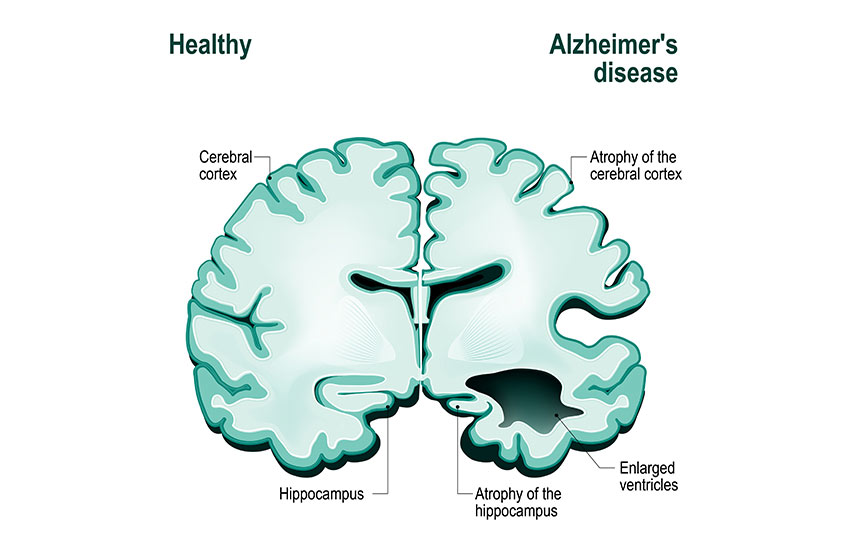Even though Alzheimer’s disease and dementia are used interchangeably, there are distinct variations between the two. It is easy to confuse the two terms, however, understanding the differences between Alzheimer’s vs. dementia can help to personalize your approach towards them.
What Is Dementia?
First and foremost, dementia is not a disease. It refers to a group of symptoms that are linked to difficulties in remembering, reasoning, and thinking. If someone has been diagnosed with dementia, it is likely that as it progresses, they will find increasing difficulty with carrying out activities of daily living that are required to remain independent. There are many different conditions that lead to dementia such as Alzheimer’s disease, Huntington’s disease, Parkinson’s disease, and frontotemporal dementia.
As dementia is an umbrella term, there are many different causes that will affect different sets of brain cells respectively. However, a common risk factor is that the chances of contracting and developing dementia increase with age.
What Is Alzheimer’s Disease?
Alzheimer’s is the most common, and also the leading course of dementia. There is currently no known cure or cause for this progressive and terminal brain disorder. Dementia generally only occurs only in the mid to advanced stages of Alzheimer’s diseases, affecting their personality, judgment, communication skills, ability to remember, as well as confusion. To diagnose Alzheimer’s disease, a checkup with blood tests, brain scans, and mental health evaluations will be required. Even though there is no known cure, there are treatments and medications that can help in alleviating and managing the symptoms that appear.
While the two overlap, it is important that caregivers are able to tell the difference between the two in order to seek proper treatment. This is especially so as the time between diagnosis and death will differ heavily. In some cases, it has been recorded to be as short as three years. In fact, by the time symptoms appear, significant damage has already been done to the brain.
Differences Between Alzheimer’s Disease and Dementia
While both conditions will impair a person’s ability to think, remember, and communicate, Alzheimer’s has a significantly larger list of symptoms. For example, Alzheimer’s will also lead to symptoms like apathy, difficulty speaking, behavioral changes, depression, and even problems walking and swallowing.
Ultimately, the symptoms that individuals face are highly dictated by the disease that they are coping with. For example, people with Lewy Body dementia are likely to experience visual hallucinations while those with Parkinson’s will experience involuntary movement.
Get the Best Memory Care at Discovery Village At Sugarloaf
When one is coping with dementia or Alzheimer’s, it is inevitable that they will require assistance with their daily activities when the condition has progressed onto the more advanced stages. For most people, this will mean seeking residence in a memory care community. At our SHINE® Memory Care program, we provide round-the-clock specialized care and exclusive senior living programs to enrich the days of our residents and ensure that they have the resources they need to live better lives.
For more information on our memory care program, contact us today.







